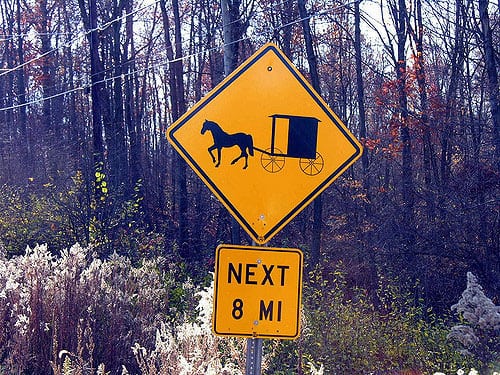
August 28, 2019; LNP/Lancaster Online
A new nonprofit, the Amish Heritage Foundation, will hold its first conference, Disrupting History: Reclaiming Our Amish Story, in Lancaster, Pennsylvania, at the end of September. Over two days, more than a dozen speakers will speak on topics ranging from Amish culture, to Navajo sovereignty, to women and the #MeToo movement. Their goal is to remove barriers between the Amish and the rest of society, bringing in multiple voices that have been marginalized.
It’s a bold step forward from an organization whose paperwork has yet to make its way through the IRS—which, as an aside, can be problematic. Another organization called the Amish Heritage Foundation was incorporated in 1995 in the state of Ohio; it received a 501c3 in 2001, so it is listed on GuideStar. Ohio cancelled the incorporation in 2009 for nonrenewal of certificate, and the IRS revoked the nonprofit’s tax-exempt status in 2011 for non-filing of a Form 990 for three years in a row. But the name, and the file, linger. Perhaps the new Foundation should tweak its name a bit.
The mission of the Amish Heritage Foundation is “to establish a new generation of Amish leaders who reclaim our Amish story and engage our silenced issues.” It began with founder Torah Bontrager’s story of abuse within an Amish community. Bontrager ran away in the middle of the night from her Amish community at the age of 15, twenty-two years ago, after alleged assaults by ex-Amish relatives. She credits a book she read about Harriet Tubman and the Underground Railroad when she was 13 for the path to release. (Bontrager tells her story in her book, An Amish Girl in Manhattan.)
Bontrager and co-founder Elam Zook, who also left the church, claim that the image of the Amish as a harmonious and idyllic community is largely mythical. The religion’s principles of self-reliance, assisting those in need, and welcoming strangers certainly are present, but it all belies internal dysfunction.
The founders of the new nonprofit place a large part of the blame on a lack of education. Young people are not taught to question any authority, even those that abuse them physically and sexually. As reported in the LNP, Zook sees Wisconsin v. Yoder, the 1972 U.S. Supreme Court decision that allowed the Amish to forgo compulsory education after eighth grade, as “a crucial wrong turn.”
Sign up for our free newsletters
Subscribe to NPQ's newsletters to have our top stories delivered directly to your inbox.
By signing up, you agree to our privacy policy and terms of use, and to receive messages from NPQ and our partners.
It froze Amish culture in time and created “an embrace of ignorance,” Zook said: “It’s what sealed our fate.”
In a comment, Zook calls Yoder “a betrayal of the highest ideals of both Amish and non-Amish society.”
Data on abuse within the Amish community is hard to find. In 2004, an Amish woman, Mary Byler, reported her brothers for years of rape. Although they pled guilty, she was condemned and excommunicated. Byler, who has joined the nonprofit’s board, will be a speaker at the conference.
According to the founders, the Amish Heritage Foundation is a secular group focused on enlightenment principles of rationality and humanism. Future plans for the Foundation are to have social services such as counseling, education, and programs in entrepreneurship located in Lancaster and near other Amish communities for ex-Amish. They hope to include those individuals who elect to stay with the Amish community. They are optimistic and have high financial goals:
Bontrager said she is speaking with potential donors and hopes to have the foundation operating on a multimillion-dollar budget in a few years.
Bringing education past eighth grade for Amish children, as US citizens, might be a program that would attract funding.—Marian Conway











